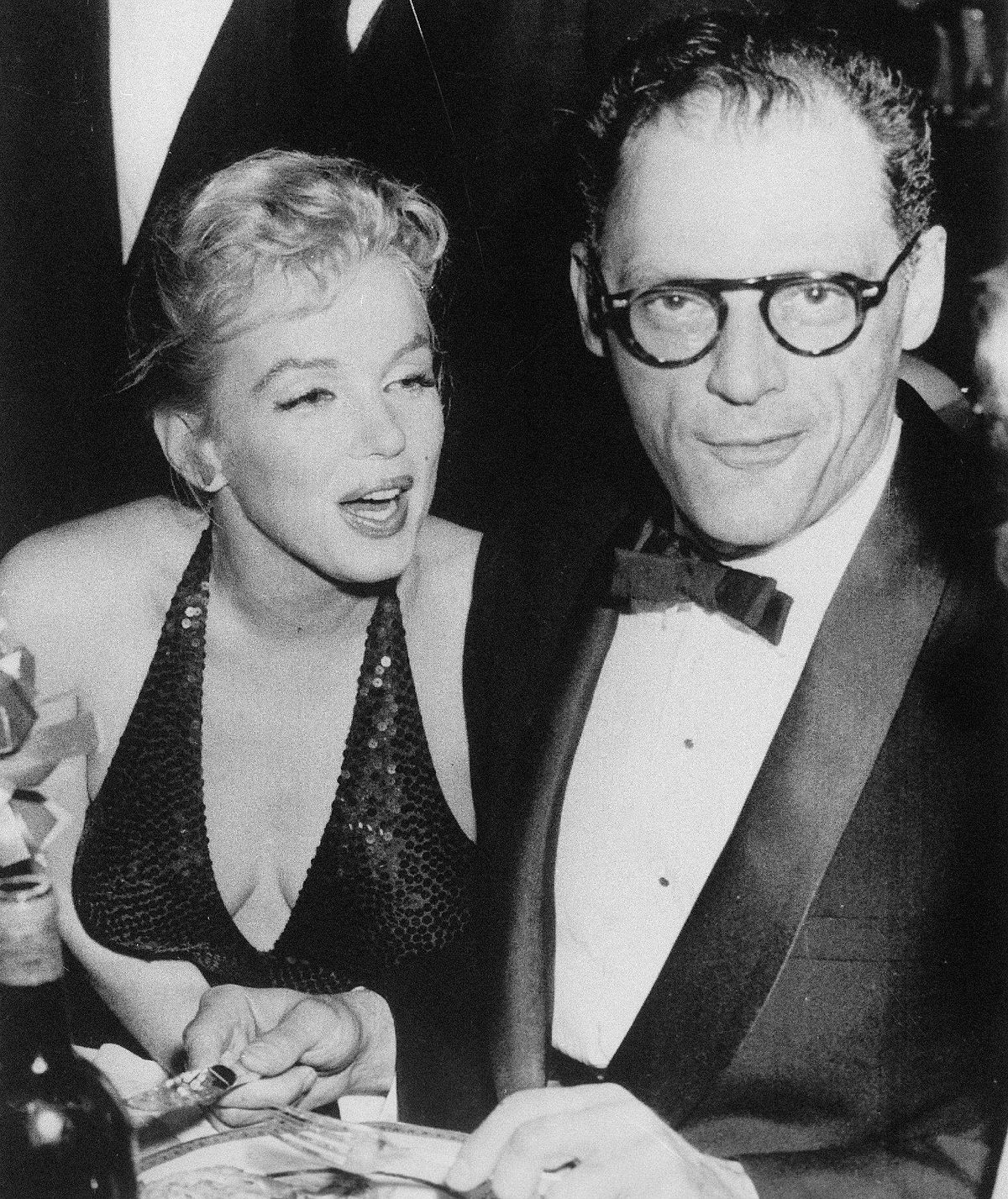 |
| Marilyn Monroe and Arthur Miller at the April in Paris Ball 1957 |
I guess another way of putting my concern is that I want the story to be beautiful and uplifting.Art:
I understand that, but this probably goes along with my Aristotelian/Millerian preference for tragedy. I find works with a clear moral valence—or, worse, an "inspirational" intent—NOT beautiful. Isn't the human being endeavoring against the black backdrop, against impossible odds, beautiful enough? Isn't it the case that the black backdrop provides the occasion for his beauty to shine forth? Isn't this the most inspiring of all pictures, the one that calls us forth out from complacency, blinking in the cold wind of the world?
I see you as the protagonist, trying to assert your story, to build your foundationless castle. It's like what King Arthur tried to do. But we've found that it only exists as "once" and "future." It only exists in the telling or, better yet, the singing of it. I'm the one who provides that black backdrop most of the time, the chorus roaring moira. You're the hero who needs to keep building, believing, setting things aright, even as you sink down into the morass.Will:
In your version of Miller, I think Biff has cancer from smoking without his shirt on, got raped in jail, and had his leg ripped off by a vengeful cow and is ashamed of his homemade robotic prosthesis.Art:
That's so much better than Death of a Salesman. Hold the presses!Will:
Another way of putting it—Yeats called tragedy a terrible beauty, not terror. The struggle against the black backdrop unites the hero to truth, hopefully...not terror. Good comes from the hero's fall, a messenger survives to tell the tale, and order is restored to the kingdom. If people just get stabbed in the neck no matter what they do, the message is that the universe is blind terror, and Aristotle denounces the art. The movie O comes to mind, in which the writer and director messed with Othello a little too much, undermined the tragic conventions, and created nihilism instead of tragedy.
No comments:
Post a Comment